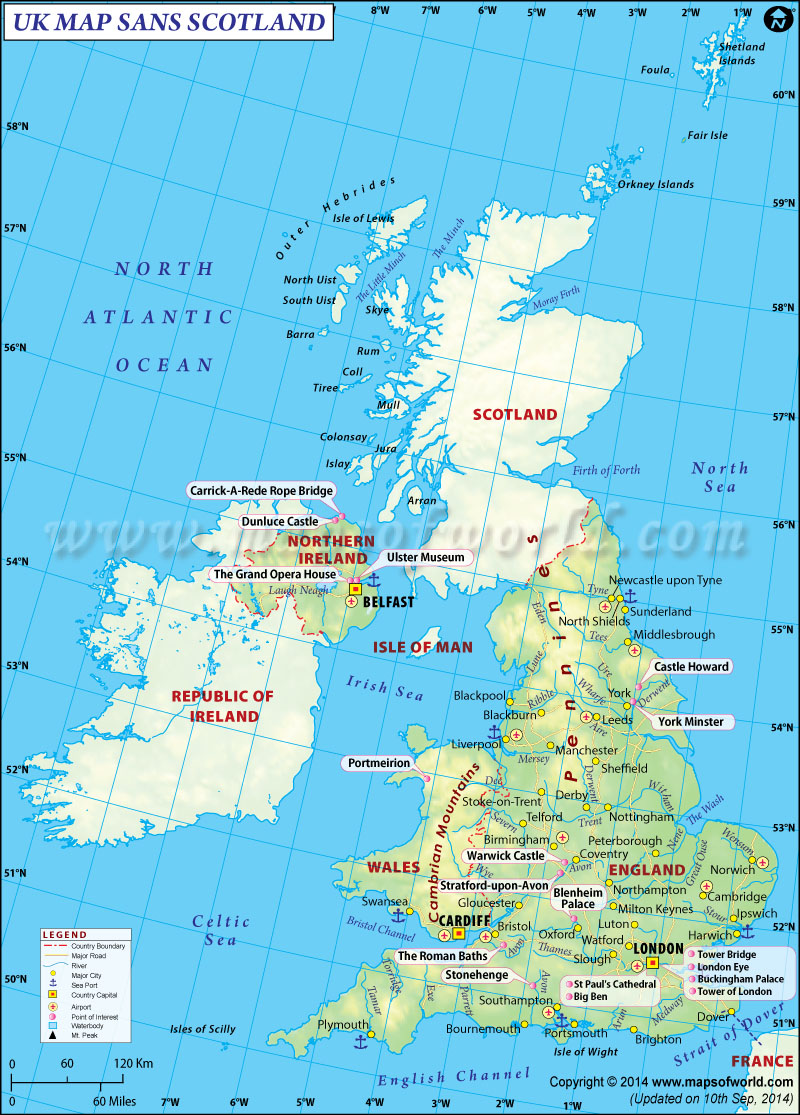It's a NO to the Scotland Referendum
As expected, the outcome of the Scottish Referendum is indeed a NO, and the outcome is in favor of a united Britain. The result tilted in favor of the NOs with 55% as against 45% by Yesses. These were declared after 7.30 am (UK time). There was a turnout of almost 85% with a target of 1,822,443 votes to win a NO mandate. The final results were: 2,001,926 for NO and 1,617,989 for YES.
It had been a precarious scene what with Glasgow councils voting a Yes, but the Scottish borders, Moray, Perth, etc., responded in favor of remaining attached to Britain.
Yet the very social fabric of Britain is set to change. This had been predicted as earlier published by the Guardian: “A no vote will change all of Britain.” The Better Together campaign seems to have effectively encouraged Scots to retain Scotland's original position and to continue being a part of Britain to safeguard the political, economic, and cultural partnership. Until the recent weeks, the “no” supporters had retained a notable lead in the public opinion polls but with the approach of 18th September, the competition seemed to have tightened.
However, many people took the plunge and decided about the option 'NO' to go for. Yet, the truth still prevails that no matter what, Scotland’s relationship with the rest of the UK will definitely change. A conservative MP had claimed the union would look “like a damaged marriage”. Let us take a look at “What’s next for Scotland as the referendum result is NO?”
- It’s a NO by a narrow majority - the independence issue is likely to crop up again in few years’ time with Alex Salmond seeking a fresh permission for a new referendum. In short, now commentators are predicting a “neverendum” to surface. However, Alex Salmond had claimed that the independence is a “once in a generation” opportunity and he had assured not to resort to another referendum if Scotland chooses to remain united with UK.
- The three Westminster parties have vowed more devolved powers to the region of Holyrood. They have also promised to include new powers to settle the income tax levels. Scotland is expected to get more power on the spending of the welfare budget, and things like speed limits, drink-driving, and air guns.
- In the economic scenario, numerous executives will now heave a sigh of relief. However, much of the future consequences depend on what impact the uncertainties of the NO bring. The lingering doubts can come in the way of the country’s recovery. Businesses too cannot tread on the road of uncertainty.
- The political scenario is also dependent on the how Scotland reacts to the 'NO' vote. David Cameron’s position is expected to get a drubbing even as the impact of the 'NO' vote is a weak one. He is sure to be revolted against because of the promise delivered for greater devolution to Edinburgh. Ed Miliband had stated that a 'NO' vote would make Scotland a part of the constitutional changes that will make Britain and Scotland emerge stronger. The SNP is expected to still retain its position as a party and First Minister Alex Salmond will continue as leader of the country’s SNP. The sole aim of the party was to make the best decision for the Scottish people and hence, a “NO” vote will not affect its position. Since people voted a NO, Salmond and the negotiators from Westminster will now be expected to collaborate to decide on the extra powers the Scottish government should get.
- There will now ensue discussions on a new settlement for the United Kingdom along with more devolved power for Scotland. The use of the devolved powers will depend on the government in charge.
- Scotland will keep using the pound, and will also remain a part of the EU. It will also have free travel permission across the border. This will ensure more stability and will help heighten the value of the pound which of late has been increasingly dropping.
No matter what, what is certain is that the 18-month long campaign has already left a deep scar. Fiona Scott (whose father was Salmond’s teacher) in an open letter to The Herald newspaper stated that the referendum “has succeeded in creating divisions across Scotland that were not there before and will still exist after the referendum, no matter which way the vote goes.” She had further predicted that even relationships between neighbors are now threatened if you had indicated which way you were voting.
References : Media reports, The Herald, Guardian.com
WBAMA17092014
Scotland Referendum 2014
The Referendum Bill for Scottish Independence followed by an agreement between the
UK Government and the Scottish Government was approved on 14 November 2013 by the Scottish Parliament and was conferred Royal Assent on 17 December 2013. The referendum as proposed by the Electoral Commission, “Should Scotland be an independent country?” where voters can only vote in favor of either ‘yes’ or ‘no’ will be held on Thursday, 18 September 2014.
It is going to be a defining day in the history of Scotland as a ‘yes’ vote would mean that Scotland’s union with
England of 300 years will come to an end and
Scotland would emerge as a sovereign nation with a population of around 5.3 million. However, David Cameron, the UK prime minister expressed his disinclination saying that he still wants Scotland not to severe its ties with
UK.
But the dilemma will not get resolved by simply voting in favor of yes/no campaign as several questions would then surface. Firstly, what currency would Scotland use after gaining independence. The chief options are to cling to the pound sterling, join the euro, or to form its own independent Scottish currency. Another question is whether an independent Scotland would still be a part of the European Union (EU). The question is significant as membership of EU brings economic gains and lends global leverage. The next question, then comes is would an independent Scotland be in a position to pay off its bills owing to its taking control of revenues of North Sea oil and gas found in Scottish waters.
Nonetheless, the Scottish government claims that it is well-equipped to look after the energy industry and to establish a wealth fund akin to Norway’s oil fund for the betterment of its succeeding generations.
Brief History
In the year 1707, under the Act of Union, the kingdom of Scotland joined the kingdom of England to form Great Britain though many Scots were quite averse to the decision. Then, in 1999, the Scotland’s government got devolved and most of the decisions were taken at the parliament of Scotland, Holyrood, Edinburgh. Gradually what became the impelling reason to call for the vote was the widening chasm between what the people of Scotland want and the policies adopted by the UK government in Westminster governed by the Conservative Party under David Cameron. Speaking further, the fall of the Scottish Presbyterian church since the downfall of the British Empire also intensified the wish for sovereignty.
WBASH100914
Last Updated on: October 26th, 2017


